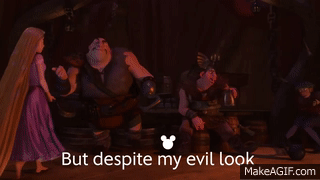All good fiction is about something more than just the story. When it comes to magic and made-up worlds, fantasy themes are necessary to pull it all together.
While fantasy is rooted in something other than what we get in real life, its themes are often always something we can all relate to. Not only will doing this create for a more interesting novel, but it’ll also help readers connect to you, the author, which encourages them to seek more of your work and become a longtime fan.
If you’re looking for good fantasy themes to weave into your work, we’ve got some that’ll stand out and make your story better.
Table of Contents
What are themes in writing?
You can define the theme in writing as a lesson or message to teach the readers through the story you’ve chosen. That’s one way, but it doesn’t often do much to help writers understand what theme means and how they can go about choosing or fitting one into their own writing.
Over at The Fiction Ferver, a newsletter for fiction folk who want to go deeper into the craft, I describe the theme like this:
“If you strip away the story and the characters, what are you trying to say with your story? That’s the theme.”
All of that to say, if you had to describe your story to someone without using any elements like plot, character, setting, or genre, what would you tell them your story is about? I’ll give you an example from the book I’m currently writing:
“My story is about redemption and righting the wrongs we committed before we really understand who we are. It’s also about fulfilling one’s life potential, or more so about whether or not your full potential is meant to be reached or if you’re just meant to use as much of it was you want, as much that makes you happy.”
From this, you have no idea that my story is a split perspective fantasy adventure set in its own world, but you know what the story is about underneath all of that.
If you’re not quite sure how you would describe your story idea just yet, that’s okay! I’ll teach you how to create your own theme at the end of this post.
Fantasy Themes + Archetypes That Make for Great Stories
You can make up your own fantasy themes, but you can also use others as a base to make your own. There are a bunch of lists online, but most of them are used so consistently that I decided to take important themes that are written about less frequently, along with some archetypes and book examples in case you need a bit more directly for writing your fantasy novel.
1. Self-Discovery
This one is common but almost always necessary, important, and well-received. We all have to figure out who we are in this life, and it happens at different stages for different people.
For that reason, you can often find this fantasy theme in books ranging from middle grade to young adult, and even into adult novels. Sometimes if you want to take it a step further, you can make this one about self re-discovery after having children who leave the home or after a major life crisis that changes everything your character thinks they knew.
This theme often accompanies stories of adventure, in which the character has to discover themselves while discovering something else. These two elements play off one another really well.
Harry Potter is a great example of the self-discovery fantasy theme because as he grows up, he’s figuring out who he is in a world where everyone has already defined him—the chosen one. But he has to discover what that means and which choices he makes, along with who he is beyond that.
2. Fear of the Unknown
Or maybe this should be called “Do Not Fear the Unknown” because your characters are bound to learn that lesson.
We all have to face unknowns in our lives. Change—and therefore the unknown—are constants in life, but ones that most people struggle with. That’s why it’s a great theme to put into your writing because you get to teach people that they don’t have to fear what they don’t know. They can overcome it and even embrace that unknown in order to live a happy life.
Lord of the Rings has many themes woven throughout its story, but this one is in there as well. Frodo Baggins has to leave the home he knows and venture out into the unknown. But not only does he find himself while there, he discovers confidence and capability while doing so.
3. The Power of Nature
This is one of the fantasy themes that can make for a really cool plot, too. If you use nature as the antagonist of the story, you can merge together an interesting theme with a powerful message.
Take the movie Twister for example, or Into the Wild. The power of nature is immense and there’s a lot of variety to work with within this theme to tell a compelling story.
Here are a few things you can consider writing about if you choose this theme:
- Water
- Wind
- Earthquakes or major structures like mountains
- Illnesses (nature-created)
- Wildfires
- Sun flares
- Magnetic field flips
4. Making Sacrifices
Choices always require sacrifices. We give something up in order to get something else. When crafting your fantasy book, think about how this theme can come into play.
Oftentimes, the sacrifices we make say a lot about who we are and what we value in life. Maybe you have a story with two characters who have to agree on what to sacrifice, but can’t seem to come to an agreement because of their different values.
There are many stories where this theme takes place, like Lord of the Rings and The Hunger Games. Katniss, without thought, sacrifices herself in place of her sister when she learns Prim’s name was pulled to compete in the hunger games. Her life for her sister’s.
That told us so much about Katniss; her love for her family, her willingness to give up her life for that of another. Both of these traits did well for her character development, and also made us want to root for her success in the games, which kept us as readers turning the page.
5. Found Family
We don’t get to choose our family. Not the one we’re born into, at least. This is definitely one of the more popular fantasy themes you can use, but it always seems to do well—for a good reason.
Think about the audience that reads fantasy. What does fantasy offer?
Another world, one with capabilities our own doesn’t have. It’s like an escape from real life and info a world where a reader gets to forget about their own world. Why would someone want to forget about their own world?
A lot of fantasy readers feel like misfits in their own life—including in their family. By offering a theme of found family, you get to show readers that they get to decide who their family is.
This theme can be found in so many books. Game of Thrones, Harry Potter, and Lord of the Rings, are among the most popular, and with Harry Potter, he literally has to have found family because all of his family is no longer living.
6. Power Corrupts
Almost every villain character demonstrates this theme, but where it can really shine is if you take your protagonist and show how they gain power, only for it to corrupt them. The reason this theme for a fantasy novel works is that it’s absolute. Power should always be shared because even the best person can succumb to corruption when given too much power.
Plus, who doesn’t love a morally gray character?
7. Good Conquers Evil
Hope is always necessary. While common, this is one of the fantasy themes people will never get sick of. As long as there are bad people in the world, readers will want stories depicting the good people winning.
And there will always be bad people.
Any archetype can fit into this theme because it’s very black and white, though the methods of the good characters winning are what you can experiment with. Do the good people win by being good? Outsmarting the antagonist? Or do they have to stoop to low levels in order to win, causing more conflict and a crisis of character?
It’s up to you!
8. Underdogs Can Win
The underdog sports story is a plot archetype that’s been loved for a long time. The theme that accompanies it can often be self-explanatory, but there is an additional element.
This is one of the fantasy themes that can be the most fun, but also the most challenging. In order to pull this one off, you want the odds stacked against your underdogs over and over and over again. Each time they make progress, that progress has to result in situations that actually make their lives harder.
Way of Kings by Brandon Sanderson is one of the best underdog stories. He takes an exiled soldier that’s been branded as a slave and has him lead a group of bridgerunners. These men are meant to die. Their only purpose is to carry bridges so the real army can reach the enemy army. However, by placing the bridges first, the bridgerunners are the first to be shot with arrows.
Kaladin, the branded slave and now Bridgeleader, has to get his team to survive. Against every odd.
The reason this theme is so powerful is because of how inspiring it is. Underdog stories are all about perseverance and never giving up.
9. Grass Isn’t Always Greener
This is one of the fantasy themes you’ll want to use to showcase a strong point about the fact that we all want what we don’t have. It’s the age-old, “The grass isn’t always greener on the other side,” approach to telling your story.
With this theme, you can add more of you into the story. Follow the tips in the section below and you’ll be able to craft this theme within others. The key here to think about what you’ve learned from your life. What did you think you wanted only to realize that it’s not all it’s cracked up to be?
Implant that into your story for a unique twist.
10. Balance Creates Harmony
Too much of anything can be a bad thing.
This is one of the fantasy themes with a lot of room to put your own opinions in it. Ultimately, the world needs to have some kind of balance. Even too much peace can be a bad thing. You read that right.
If a country or world has too much peace, what happens? Not much, and that’s the point. There becomes a lack of progress, to the point that a species will no longer evolve if they’re in an ever-peaceful state.
The show The Good Place depicts this most brilliantly in its interpretation of heaven. Or rather, the “broken” heaven the characters eventually find themselves in. The problems [spoiler] is that everyone gets everything they’ve ever wanted, and they end up becoming zombies.
That’s just one example of how you can use balance creating harmony as one of your fantasy themes.
11. Freedom Over Oppression
Another classic theme in fantasy is the idea that freedom is better than oppression. Brandon Sanderson’s Mistborn series showcases this, but so do many others. The idea is to create a situation in which there is oppression present, and show how this is toxic and harmful.
When it comes to fantasy, this theme is as present as Good Conquers Evil, probably because the two themes can be interconnected.
I recommend using this theme along with another one to create a compelling story.
Think about what you could write with a freedom over oppression theme that also touches on the grass isn’t always greener theme.
12. Everyone Deserves a Second Chance
Redemption is a powerful emotion. We all want to believe that we can be forgiven if we make mistakes. That’s why this theme hits so hard, and is one of the fantasy themes you should think about including in your book.
Just remember that there are limits to second chances. You can’t make a character commit an atrocity too unforgivable.
These are some bad things that can be too unforgivable if you want to use fantasy themes like this one:
- Killing a dog
- Killing a character that’s too beloved
- Committing a betrayal that has severe consequences (like killing a bunch of people pivotal to the plot)
13. Ordinary IS Extraordinary
This is similar to the underdog story, but different enough that it stands on its own as far as fantasy themes go. It’s the idea that even if you’re ordinary, you can do extraordinary things.
In a fantasy world setting, this might look like the only non-magic person saving the day and becoming the hero.
No matter how you want to showcase this one, be careful for plot holes. It’s hard to write an ordinary character going up against a lot of magical or highly capable characters and coming out on top. Bilbo Baggins is a great example of a character that embodies this theme.
14. People Can be Multifaceted
We tend to judge people as if there is only one thing they can be. And it’s not fair. What many fantasy readers might need to learn is that they can be a number of various things and do them all well.
If you’ve seen the movie Tangled, you know that scene when they’re in the bar with all the “rough and tough” men, but they start to sing about all the unexpected things they love to do. That is a perfect example of this theme.

Plus, this theme allows you to create plot twists because even readers will expect characters to be single faceted. They wouldn’t expect the kindly schoolteacher to be the real villain hiding in plain sight.
15. Change Doesn’t Always Mean Progress
Society can change, but that doesn’t always mean that change is a good thing.
That’s one way you could interpret this fantasy theme. You can also niche down and choose pieces of society or even people. While change can seem like it offers something new and better, it can sometimes make things even worse. How can you use this one in your story?
How to Create Your Own Fantasy Theme
I’m not going to lie. The above list is great, but it’s just a list. It’s not…well, it’s not personal. It doesn’t ooze you. It’s a public list on the internet in which anyone can read and glean a theme to put into their own books and I don’t know about you, but I certainly don’t want to read book after book that has to do with good triumphing over evil.
We have plenty of those!
What I do want to read, and I think you do too, is something specific to its author. Something real and deep and relevant to your life.
Creating your own theme should be done based on your life. But those themes are not always apparent to you, even if it is your life you’ve lived. It took me a while to figure this out, but when you start creating your own themes, your fiction becomes about something.
To do this, you have to do some digging. Into yourself. Crack open one of those empty notebooks I know you have stacked somewhere or open a blank doc to write some of this down:
- Write down your strongest memories
- Think about your biggest values
- Remember a time when you learned a lesson the hard way
- If you could give someone 3 pieces of life advice, what would they be?
What are commonalities amongst those answers? There tends to be a handful of common themes in our lives, or lessons we’ve had to learn over and over again. Those are what we know deeply and can write a meaningful story about.
After all, this is what they mean when they say to write what you know.



